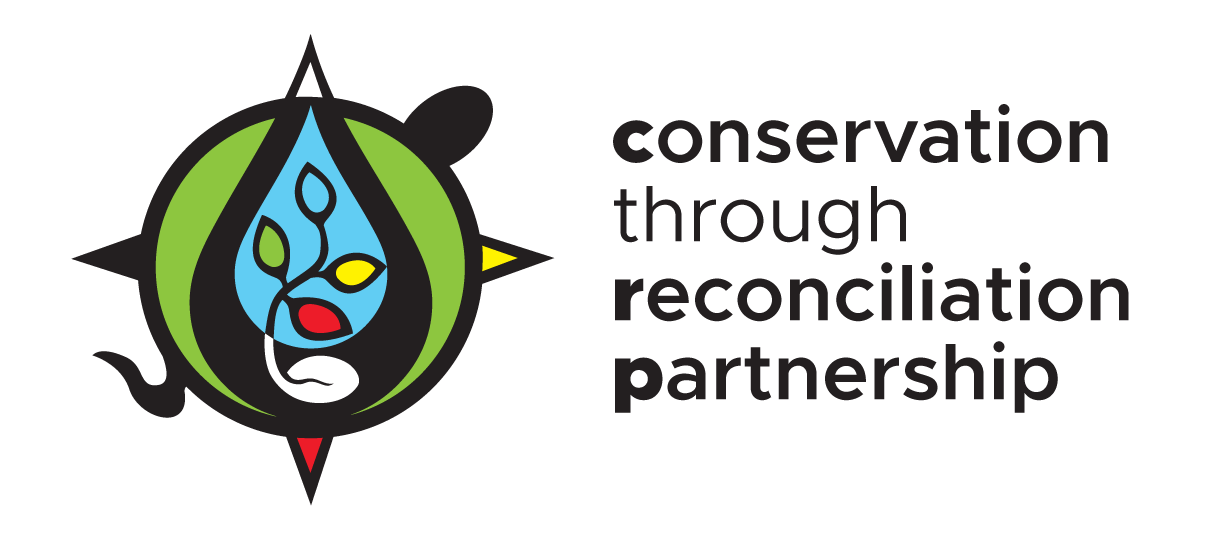Our Approach to Research
By Robin Roth
March 23, 2021
In 2019, the Conservation through Reconciliation Partnership (CRP) was launched to bring together a diverse community of partners to act on the recommendations set out by the 2018 Indigenous Circle of Experts We Rise Together Report. The partnership represents a seven-year program of work hosted by the IISAAK OLAM Foundation, the Indigenous Leadership Initiative and the University of Guelph.
For the past two years, we have been building the foundation for a collaborative and reciprocal space where Elders, university and community-based researchers, conservation practitioners and community partners work together to inform, support and amplify Indigenous-led conservation.
The CRP is not a typical university-based research project. Research is done collaboratively and in service of Indigenous-led conservation and it is done by everyone; it is an activity we all participate in, regardless of whether we are based in a university, a conservation organization or in community.
Unfortunately, this is not what most people think of when they hear the word ‘research’.
Linda Tuhiwai Smith famously calls 'research' the dirtiest word in any Indigenous language. It has come to represent a style of inquiry where academic and scientific 'experts' extract and regularly misrepresent Indigenous knowledge and governance with little benefit for Indigenous communities. In Canada, Western methods of research and inquiry have been used as an extension of colonialism to assimilate Indigenous Peoples and strip them of their rights.
It is for these reasons we have intentionally moved away from the term 'research streams' and instead use 'streams of work' to recognize different ways of knowing and doing that exist within our partnership. Our streams of work allow for diverse perspectives from across the partnership to come together in Ethical Space in service of our shared goal of transforming conservation in Canada. Practicing Ethical Space requires transparent, honest and authentic dialogue where deep respect for different knowledge systems and worldviews is cultivated.
Thankfully, there are emerging models of research which address its dark history and begin to decolonize its practice. We build on those models here, first and foremost, by adhering to the principles of ownership, control, access and possession (OCAP) which ensure Indigenous Nations and communities have control over the data collected and its use. Secondly, we engage principles of decolonized, Indigenous and reconciliatory research by ensuring deep engagement with Indigenous Peoples and organizations from early stages of research formulation, employing Indigenous methods and holding space for Indigenous voices. Third, we centre knowledge gathering and generation within the practice of co-learning and co-production.
Finally, we are guided by the principle of Two-Eyed-Seeing, which is the practice of learning to see from one eye, the strengths of Indigenous knowledge and ways of knowing, and from the other eye with the strengths of Western knowledge and ways of knowing, and drawing on both to guide discovery, relationship building and problem solving.
Research projects within the CRP are rooted in both Indigenous and non-Indigenous intellectual traditions. We are rejecting the dominant research paradigm and embracing research excellence that happens outside of university settings, as well as within them, to rebalance the relationships between university research, Indigenous communities and Indigenous organizations.
Essentially, the streams of work demonstrate knowledge sharing in action. They will develop into hubs of activity where contributors will learn from one another and move projects forward in the spirit of collaboration and reciprocity. By working in this way, we’re weaving together all the good work being done across the partnership, eliminating replication, responding to inquiries, developing new collaborations and sharing our insights widely.
It is our hope that the streams of work truly demonstrate the essence of ‘Together We Rise’ and serve as a model for other countries seeking to build decolonial partnerships to support Indigenous-led conservation.

